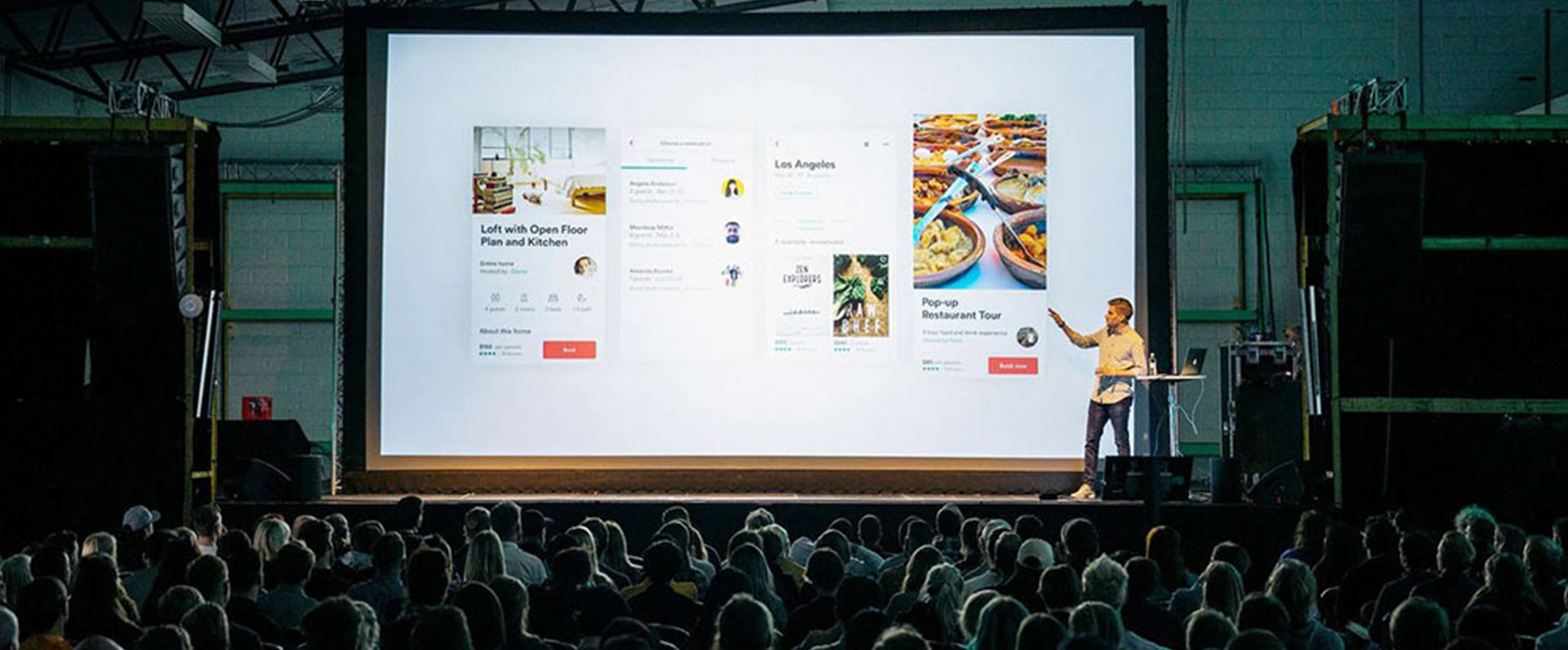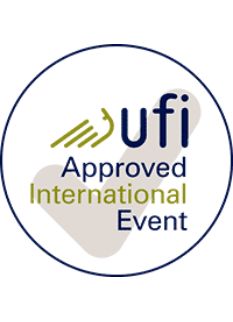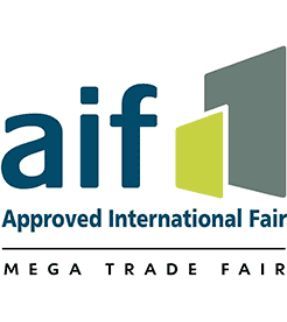
Content Sessions
Hear 30+ industry leaders discuss the latest trends & innovations, food & sustainability, road to market & business insights in the Alternative Protein market over 4 days of knowledge rich seminar sessions.
The inaugural Big Idea Food Competition (BIFC) organised by Big Idea Ventures will also be hosted on Day 1 of seminar sessions at Alternative Protein Asia. The competition will shine a spotlight on the best entrepreneurs in this exciting space in Asia with the winner clinching an investment prize of US$200,000 at the finals.
Seating capacity is limited for each seminar, registration is strongly encouraged.
Registration for seminars is a 2-step process:
1st step: registration for the tradeshow including questionnaire,
2nd step: register for onsite events/seminars (FHA-Food & Beverage)..
PROGRAM SCHEDULE
| Time | TITLE |
|---|---|
| 10:30 |
Day 1 | Big Idea Food Compeition (BIFC) Benjamin Pippin, Big Idea Ventures’ Channel Director will introduce the inaugural Big Idea Food Competition (BIFC). BIFC will shine the spotlight on the best entrepreneurs in the plant-based food industry in Asia Pacific and create new entrepreneurial ecosystems while inspiring the next generation of food startups. In a world where food and food security is becoming an increasingly political issue, the need for conscious food production and sourcing has become a major issue facing the planet. The Big Idea Food Competition (BIFC) aims to discover and support the next generation of food entrepreneurs and encourage new innovations in this food space
|
| 10:40 – 11:00 |
Keynote Opener Christian Cadeo, Managing Partner of Big Idea Ventures (BIV) wll be sharing about BIV’s work. BIV is solving the world’s greatest challenges by supporting the world’s best entrepreneurs, scientists and engineers. Its first fund, the New Protein Fund ($50M+ AUM) invests in global alternative protein companies at the pre-seed stage via its accelerator program and seed to series A via direct investment. New Protein Fund I is backed by leading food corporations including AAK, Avril, Bel Group, Bühler Group, Givaudan, NR Instant Produce, Meiji, Tyson Ventures, and Temasek Holdings. To date, Big Idea Ventures has invested in more than 80 alternative protein companies across 22 countries. New Protein Fund II will open in 2022. |
| 11:00 – 11:15 |
Big Idea Food Competition (BIFC) Introduction Join us for a brief rundown of the entire competition, an introduction to the startups and partners. The best startups will be selected to compete for the crown and become the champion. Big Idea Ventures will be hosting a series of physical and virtual competitions to find the best of what Asia has to offer. |
| 11:30 – 12:45 |
Big Idea Food Competition (BIFC) Start-up Pitching Session Join us for the pitching session of new protein start-up companies that seek to compete for 200.000 USd. The top 5 alternative protein startups in Singapore will pitch their exciting companies to our esteemed panel of judges for 5-7 minutes each, followed by a short Q&A session. |
| 12:45 – 13:00 |
Short Break |
| 13:00 – 13:15 |
Keynote Address From Sponsor Dominique Kull is to explain why the Singapore-based contract manufacturing platform SG Protein is the partner of choice for those who are planning to produce or distribute their own plant-based product, but don’t want to invest into manufacturing infrastructure. |
| 13:15 – 13:30 |
Keynote Address From Sponsor Frantz Braha, the Chief Growth Officer of Saladstop! will discuss their focus on alternative proteins, going vegan with their restaurants and the future of healthy, sustainable food. |
| 13:30 – 16:00 |
Big Idea Food Competition (BIFC) Cooking & Tasting Session Each startup will prepare dishes using their own company’s innovative products for the judges to try. BIFC Singapore’s judging panel include: Christian Cadeo, Managing Partner of Big Idea Ventures, Jose Luis Del Amo, Executive Chef at Classic Fine Foods, Frantz Braha, Chief Growth Officer at Saladstop! and Guglielmo Bonora, R&D Singapore Center Head at Nestlé. |
| 16:00 – 16:15 |
Keynote Address From BIV Partner While the judges decide on a winner, a representative from one of our partner’s, Classic Fine Foods, will be sharing on the incredible work they do in bring new food products to consumers’ tables. |
| 16:15 – 16:30 |
Competitor Overview and Highlights This segment will provide a brief recap of the startups’ work and the delicious dishes they cooked for the judges. A short overview of today’s companies and a refresher for audience during which the judges confer on the winning start-up. |
| 16:30 – 17:00 |
Winner Announcement Big Idea Food Competition (BIFC) The top three winners will be announced and the prizes will presented! But don’t worry, BIFC doesn’t end here! Christian will also be highlighting the upcoming BIFC events.
|
| 17:00 – 18:00 |
Event Closing Ben will be sharing some closing statements and we will then kick off the networking session where the audience will get a chance to interact with the BIFC startups and partners |
PROGRAM SCHEDULE
| Time | TITLE |
|---|---|
| 10:30 |
Day 2 | Road to Market & Business Insights Alternative Protein Market is estimated to be worth $27.05 billion by 2027. With a population of some 4.7 billion people – equivalent to 60% of the global population – increasing affluence and a rising middle class, Asia will determine global protein growth for decades to come. So what will the future of alternative proteins in the region look like? Join us for Day 2 at APA to learn about the opportunities and bottlenecks of this emerging industry. |
| 10:30 – 11:15 |
Breakthrough Bites: Vision & Value of New Protein by 2030 A revolution in the food industry is underway and it will extend across the entire global food value chain, from fark to fork. Alternative Protein Asia is kicking off with a keynote panel discussion on the maturing of the industry, driving new value and launching initiatives to reach new markets whilst transforming our food systems. As the global population is expected to reach 9.7 billion by 2050 the demand for high quality protein derived from sustainable and diverse range or sources will be imperative. Huge promise always comes with formidable challenges, and the alternative protein industry is no exception. The strategy and investment into this sector in the next few years is to shape how our global menus will look like. To understand the value of the industry as well as vision that is driving it, the panel is to discuss:
|
| 11:30 – 12:15 |
Regulatory Frameworks for Alternative Proteins in APAC: Opportunities & Bottlenecks Research suggests that faster technological innovation and full regulatory support could speed up growth for alternative protein by 22% by 2035. At that rate, Europe and North America would reach “peak meat” by 2025, and the consumption of animal protein in these markets would begin to decline. As investments in alternatives nearly doubled in 2021 across APAC alone, one may expect a similar trajectory for this emerging industry in this part of the world. Regulatory frameworks offer many opportunities for harmonization and the regulator is playing a key role in advancing the sector and offering trading opportunities. This panel discussion co-organized by The Good Food Institute (GFI APAC) looks at the now and next for new protein regulation in Asia and across the globe. Learn how the industry can take advantage of ever-changing regulatory environments and join us for an exciting deep dive into:
|
| 12:15 – 13:15 |
Float Foods takes the Chicken out of the Egg with OnlyEg – Lunch Demo & Tasting Float Foods takes the chicken out of the egg with OnlyEg: award-winning 100% plant-based whole egg alternatives across an extensive range of formats, including yolks and whites. OnlyEg puts Singapore on the map with innovative, nutritious and incredibly delicious eggs that work great across cuisines and dishes, catering to various diets. Cholesterol-free, gluten-free, cruelty-free, antibiotic-free and sustainable! |
| 13:15 – 13:45 |
The Behavioral Science Behind Marketing Meat Alternatives
President’s Chair Professor, Wee Kim Wee School of Communication, Nanyang Technological University (NTU) Although countless meat-lovers could hardly imagine giving up meat, the likes of Impossible Foods or Beyond have converted 33 million Americans to plant-based meat. At the same time, the young industry is facing challenges in appealing to various consumer segments in various parts of the world. What are the key consumer concerns and what do we know about alternative protein types and their appeals versus rejections, especially in Asia? Which components of branding and marketing should new food products prioritize to achieve adoption in different markets? Join this science-based presentation on next level marketing and learn about:
|
| 14:00 – 14:45 |
New Protein for Traditional Palates: Conquering Asian Consumers Through Culture, Convenience and Cuisines
Kelvin Ng, To compete with conventional products, alternative proteins must achieve several feats: be on par with price, flavour and desirability of any other protein food in the supermarket isle, if not surpass those. Replicating the full Asian food experience with alternatives has proven tricky, but brands believe there is untapped potential within the broader seafood and dairy flavor category as well through addressing culture and convenience directly. To unlock the largest market, the omnivores, new protein producers are employing diverse strategies to change traditional buyer behavior. Can you tap into kosher or halal markets with cultured meat? How does GenZ approach the topic of more ethical foods? Should you market direct to consumers and avoid middlemen? This panel is looking at success stories of innovative brands on how to maximise the marketing or R&D dollar to reach growth in Asia:
|
| 15:00 – 15:45 |
Scaling an Industry – Addressing Growing Pains in the Booming Foodtech Landscape Exploding valuations, increasing competition and a host of unproven entrepreneurs requesting large investments. FoodTech ventures have the appeal of great bets in an environment that sees high food price inflation, disrupted supply chains, growing climate change issues and a retreat of globalization. Sizeable deals and valuations have however not translate into larger equity stakes for investors backing more mature agtech or foodtech companies. So, are foodtech investments good business? What are the checklists for investors? What are stakeholders looking for when investing into young companies? One needs more than a great product and funding to succeed in the next decade. Join this Venture Capital-led discussion on accelerating change and scaling an industry to understand:
|
| 16:00 – 16:30 |
The F&B Disruptor: The Trajectory of the Alternative Protein Market in APAC The demand for plant-based meat, dairy, and eggs increased due to unprecedented demand during the lockdown in 2020 as consumers around the world stayed at home, cooked, focused on their health, and reconsidered the plate-to-planet impact. According to GlobalData, the market value of the global meat substitutes reached $7 billion in 2021, growing at a CAGR of 8.82% during 2017-2021, whereas it grew at a CAGR of 15.63% in the US during the same period. This session will use data analytics from consumer surveys, news reports, patent filing, deals and acquisitions in order to explore the strength and direction of the industry in the Asian markets. Join this intelligence session to:
|
PROGRAM SCHEDULE
| Time | TITLE |
|---|---|
| 10:30 |
Day 3 | Trends & Innovation Day 3 of APA will be dedicated to the emerging trends and innovation that will shape the alternative market in years ahead. Experts predict that more consumers will have a chance to taste alt dairy or protein products produced via precision fermentation. This technology enables the programming of micro-organisms to produce complex organic molecules, such as proteins. |
| 10:35 – 11:00 |
Alternative Proteins – Opportunities and Challenges in Asia Pacifific With the growing global interest in alternative proteins, there is also a growing interest in Asia. While this growing demand in the region is due to the rise in middle income population, there remain challenges such as adapting to local tastes, the issue of affordability and availability. As such, it is important for companies to address such issues in order to capture the alternative protein opportunities in Asia. |
| 11:00 – 11:45 |
On the Food Frontier: Technologies Driving New Protein Production & Prices The price of alternative protein foods is fundamentally determined by the underlying technology, its scalability, and innovative approaches to manufacture efficient, safe, and delicious products. In order for distributors or buyers to understand the promising methods driving our next gen foods, their marketability as well as price points, this seminar is to give an overview what’s to come in:
Despite the challenges of scaling and cost, the cultured meat industry will further attract investment and innovations. Until now, Singapore has been the only nation to approve the sale of cultured meat, though with China having released its five-year agricultural plan, which specifically mentions cultivated meat, the industry might change rapidly soon. We may equally see cultivated meat blends with plant protein ingredients, both to lower costs and appeal to consumers who are looking for nutritional features like fiber. The emergence of innovative new processes such as plant molecular farming (PMF) has the industry excited. It uses plants as recombinant protein production hosts to produce ingredients that traditionally only exist in animal products. The process is similar to precision fermentation but utilizes plants instead of bacteria or fungi as cell factories. Join our expert panel for an exciting exchange on the now and next in alternative proteins! |
| 12:00 – 13:00 |
On The Green Side’s Asian Inspired Plant-based Chicken lunch! Welcome to the world of Version 2.0 of plant-based chicken alternatives. Utilizing technology, we create protein rich, plant-based chicken alternatives that look the part, cooks similar and taste like the real thing. By introducing water, pressure and heat to our multi plant-protein blend, we get a result with the elongated fibrous textures of real chicken meat. Not only does our products have a very short and clean label, but we also give you all the healthy nutrients you need. Our products are not just another nugget, and the versatility of our products in the kitchen is something to experience. These products can be used in any chicken style dish globally. Please join us today, for an Asian chicken-inspired, plant perfected lunch demo. |
| 13:15-14:00 |
Got Milk?!: Is Next Generation Dairy A Winning Formula for Cheese, Milk & Yoghurt? The dairy industry is incredibly lucrative with its food market share expected to increase by USD 109 billion from 2020 to 2025 at an accelerated growth rate of 2.79% CAGR. 44% of this market’s growth is expected to originate from APAC with India and China taking center stage. This development is not the only evolution for dairy as the alternative competition is on the rise and the feasibility of a future with cellular agriculture is slowly becoming a reality. By combining food science and nutritional research, next-generation cheese products could have greater appeal to consumers and equally be much more sustainable. Join this session on why we need precision fermentation derived casein’s, their functionality, and how we can envision the transition to non-animal derived dairy including cheeses. |
| 14:00 – 14:30 |
Session Break |
| 14:30 – 15:00 |
The Price of Protein: Supply Chain Optimization for Ingredients and Infrastructure Recovery from Covid-19, the war in Ukraine, and changing weather patterns are some recent trends that have driven interesting dynamics in the price of protein. How have resulting resource shortages, hikes in feed costs, and commodity export bans in Asia affected the price of protein? Has the plant-based protein sector been more shielded from these market shocks than the conventional meat sector? What might we expect in terms of price dynamics going forward? APAC consumers are often branded as especially price sensitive when it comes to purchasing protein. Many companies in the region have been focused on launching cheaper plant-based products in local markets in the belief that consumers will be more willing to buy. Have lower-priced plant-based products been accompanied with the expected increases in interest and sales? What can we gather so far about the role of price as a driver of plant-based purchasing in Asia? When we think of bringing down costs, economies of scale is an imperative. However, we need to explore a variety of pathways to optimise the supply chain for ingredients and infrastructure and reach price parity as fast as we can. What levers do we have to decrease costs, from ingredient diversification, processing substitution, localisation, hybridisation, and retrofitting infrastructure, to commercialising sidestreams? What do we need to do as an industry to progress along all these fronts? What is the role of price in unlocking scale in alternative proteins? Which pathways can we explore to bring down costs? |
| 15:00 – 15:30 |
Plant-Protein “Cropportunities” – How Supply Chains and Local are Leading the Way Most of the food consumed by humans is derived from only a handful of crops, most notably corn, soy or wheat. Supplying raw materials for plant-based meat is to shape up the industry. This session will explore gaps in the alternative protein value chain for local crops (“cr-opportunities”) like mung beans, duckweed and spent grains, by highlighting why such crops are important to explore as sustainable and nutritional sources for plant-based products. |
| 15:45 – 16:15 |
The Cultivated Nutrition: Public Perception & Consumer Acceptance of Cell-based Food  Dr Mark Chong,Associate Professor of Communication Management (Practice), Singapore Management University The first study we will present was the first to compare consumer acceptance of cultured meat in the U.S. and in Singapore. With a representative sample of 616 Singaporeans and 759 Americans, our results revealed that Singaporean respondents had greater acceptance of cultured meat compared to their American counterparts, and this cultural difference was explained by Singaporeans’ stronger social image eating motivations. We argue that Singaporeans’ motivation to project a favorable social image of being “trailblazers” through their food choice is one reason why they might express a higher acceptance of novel foods such as cultured meat. The second study we will present is an exploratory investigation into the similarities and differences between actual cultured meat eaters and meat eaters who have not eaten cultured meat in Singapore. Our findings indicate that consumers are accepting of cultured meat when they perceive assurance of safety as well as benefits to human, animal and environmental health, especially in a culture where people have strong social image motivations. In addition, our findings indicate that perceptions of cultured meat’s unnaturalness can be overcome when the above conditions are in place. |
| 16:30-17:00 |
Vision 2030: Cultivating Innovation in Cellular Agriculture to Address Food Security An introduction to Cultivated Meat and Seafoods – presented through some of the ground-breaking developments of the major players in the APAC region. A dive into the potential of the industry and the rationale to which it has become a necessity for sustainability and food security on a global scale. An exploration of the future of Cellular Agriculture in the context of efficient regulations and policy developments. |
PROGRAM SCHEDULE
| Time | TITLE |
|---|---|
| 10:30 |
Day 4 | Food & Sustainability The world’s consumers love animal-based protein—so much so that in 2020 they ate 574 million metric tons’ worth of meat, seafood, dairy, and eggs—almost 75 kilograms per person. So the adoption of alternative proteins will have a measurable positive impact on the environment, supporting a number of the UN’s Sustainable Development Goals including responsible consumption and production, and zero hunger. The shift to plant-based meat and eggs alone will save more than 1 gigaton of CO2 equivalent by 2035—the equivalent of Japan becoming carbon-neutral for an entire year. It will also save 39 billion cubic meters of water, enough to supply the city of London for 40 years. How important is the environmental aspect in transitioning perhaps even partially to these foods? |
| 10:30 – 11:00 |
Are Plant-based Ingredients Healthier and Friendlier to the Environment? More and more people are interested in following vegetarian or vegan diets or watching their health. A shift away from animal products is getting easier with more fortified and nutritious plant-based foods. The right plant-based foods can be excellent sources of protein and other nutrients, often with fewer calories than animal products. The nutrition differences between animal and plant proteins, and how plant-based protein can be used as alternatives for an environmentally sustainable diet. |
| 11:15 – 12:00 |
Food Sustainability: Transforming Waste to “Gold” to Feed More
Join us for presentations and a roundtable to discuss:
|
| 12:15 – 13:15 |
New Protein Bites Tasting Bar – Best in Show Award Join us for a short presentation and award the “Best in Show” honor for the most liked snack from our New Protein Bites Tasting Bar. |
| 13:30 – 14:00 |
Closing |
VISITOR PRE-REGISTRATION
Pre-register your visit to FHA-Food & Beverage to enjoy a full waiver of the admission few amongst other perks!
-
-
-
-
-
-
-
-
- Full waiver of the SGD 80 admission fee
- Access the online business matching portal to pre-arrange meetings
- Full access to the online show directory and floorplans
- Print your own admission badge from the comfort of your home/office
-
-
-
-
-
-
-
Online pre-registration for visitors to FHA-Food & Beverage will resume in September 2020.
Join our mailing list to get the latest updates and important developments about the show.





















































